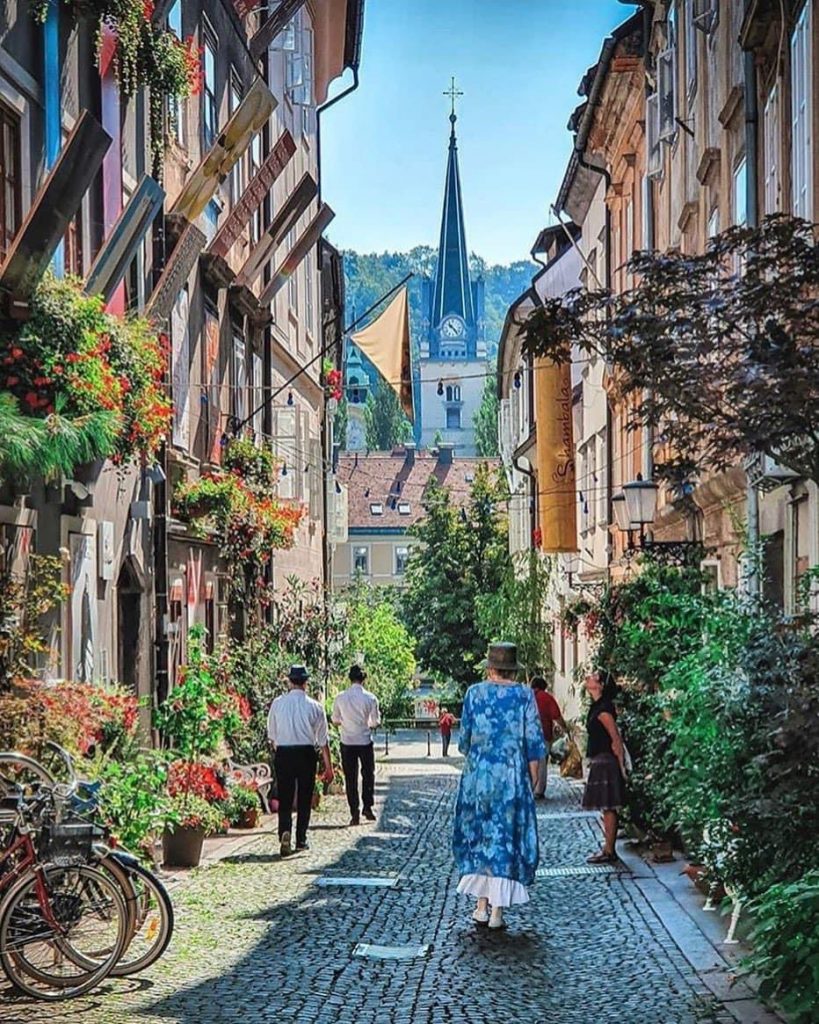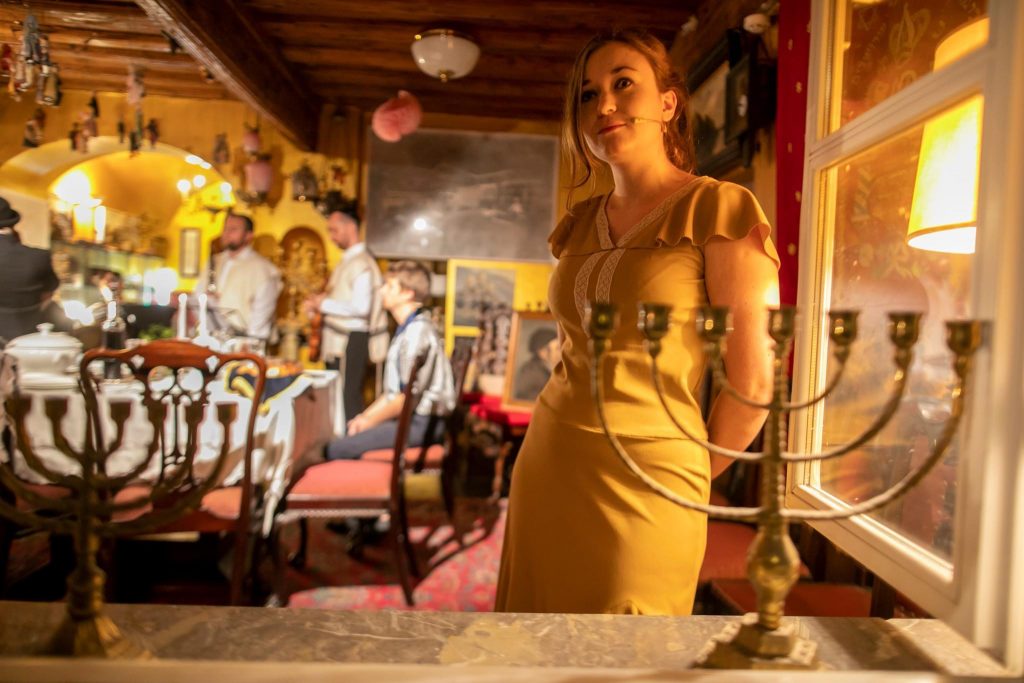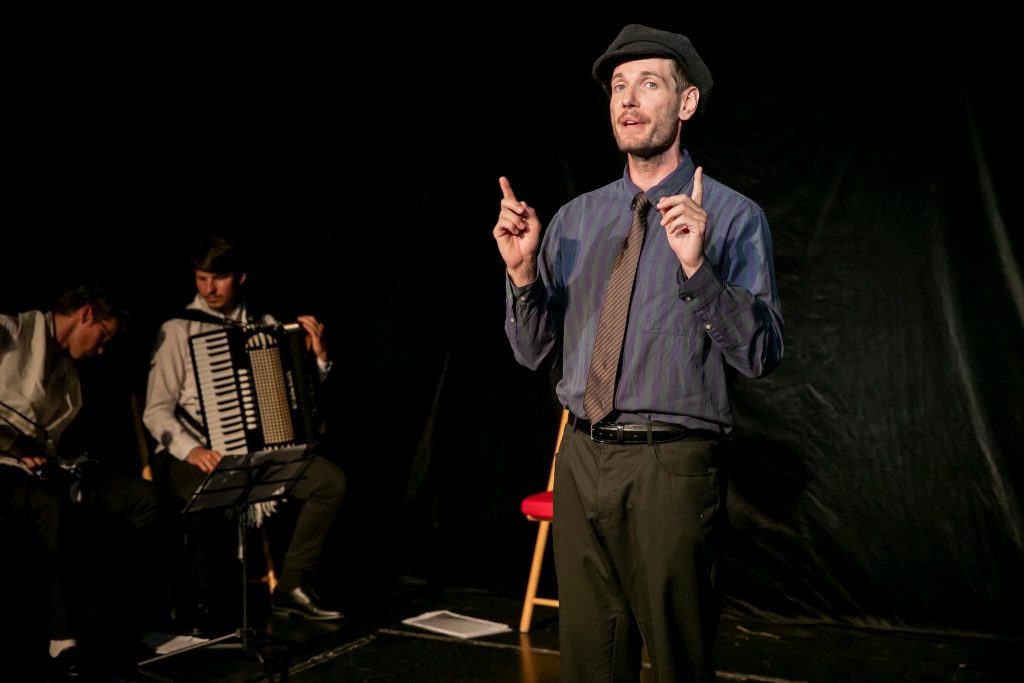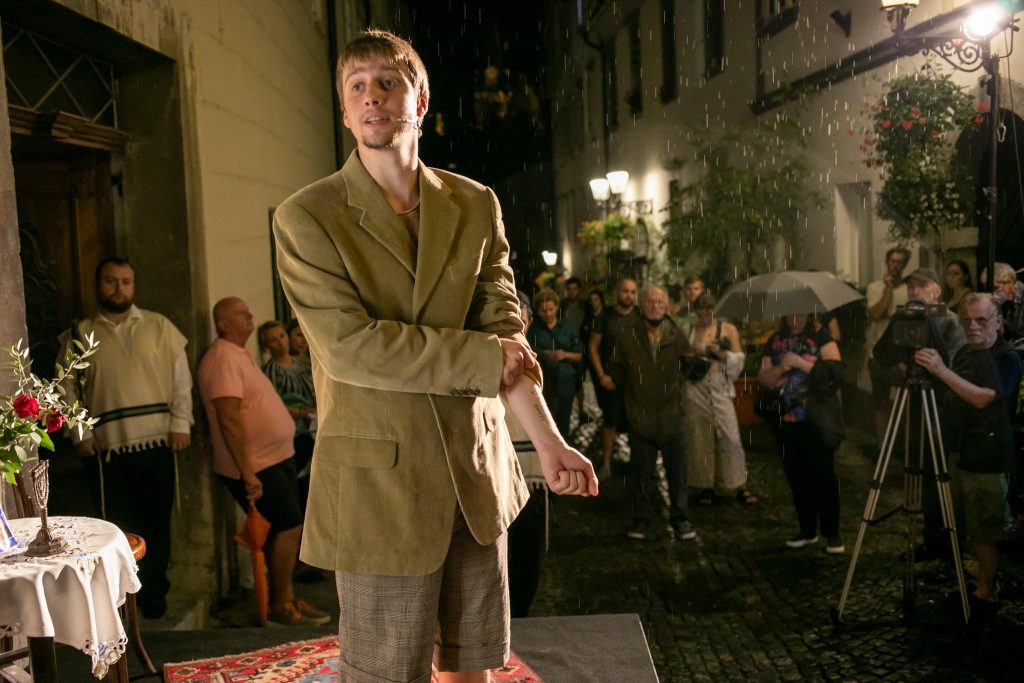Established in 2013, the Jewish Community Center of Ljubljana aims to share the diversity of Judaism, with an emphasis on culture and understanding, opening its doors to all Slovenian Jews and tourists. It is based on three pillars: history through a museum tracing the history of Slovenian Jews from its beginnings to the Shoah, religion in its synagogue and its festival hall and finally culture with a place dedicated to workshops and exhibitions. The synagogue was opened in 2016. Services are held there for Shabbat and major holidays. Here’s our interview with Robert Waltl, Director of the JCC Ljubljana…

Jguideeurope: Which events are organized for this year’s European Days of Jewish culture?
Robert Waltl: The Jewish Center in Ljubljana is organizing various events for this year’s European Days of Jewish Culture. The first events will take place on September 1st. The program on this day includes a musical performance featuring stories of some Jewish families from Ljubljana between the wars and during the Holocaust, a concert by the klezmer group Kontra Kvartet, and a performance by cantor Nikola David, with actors Nika Korenjak, Robert Korošec and Timotej Novaković. This will be a blend of music with Jewish history and tradition in Ljubljana and Slovenia, including guided tours of Jewish heritage in Ljubljana, at the Jewish Museum, the synagogue, and the Holocaust exhibition in Ljubljana.
Later, we will organize other musical performances and events until the end of September. We will host the brilliant Motl Gordon from Israel, and in November, we will conclude with the highlight of the 10th Festival House of Tolerance, featuring film screenings, theater and puppet performances, concerts, educational mornings, and workshops on Jewish cuisine and art. A special emphasis will be placed on an interfaith panel discussion focusing on coexistence and dialogue between different religious communities.
The highlight of this year’s celebration will be the November premiere of a puppet monodrama by Isaac Babel, “The Story of My Dovecote,” from the collection “Stories from Odessa,” directed by guest Robert Smolik from the Czech Republic. Radka Mizetova is preparing the puppets and scenery, Veronika Svoboda the music, and I will perform and animate.

Can you share an emotional moment or encounter about last year’s event?
One of the most emotional moments of last year’s European Days of Jewish Culture was during the opening of the exhibition “The Holocaust in Ljubljana.” With theater actors, we presented five stories of Jewish families from Ljubljana that had previously been completely unknown to the public. In recent years, we have placed Stolpersteine for Holocaust victims and uncovered completely forgotten stories after 80 years. The stories of Holocaust survivors and the presence of their families added a deep and poignant atmosphere to the event. Particularly touching was the story of the only surviving Jewish boy in the Ljubljana region, Tomaž Zajc, who survived due to the bravery of his non-Jewish nanny and her family, who were all recognized as Righteous Among the Nations. His personal story of that horrific time, the deportation of his entire family, his resilience and survival, and the courage of his nanny Savica Rožanc and her parents, moved everyone. The sense of solidarity and remembrance was palpable, creating a strong connection among all present. Tomaž Zajc passed away in December after a long illness, but he remains with us forever.

Have you witnessed an evolution in the interests regarding Jewish culture since October 2023?
After October 7th and the horrific attack on Israel, the situation in Slovenia changed dramatically. Unfortunately, this led to a significant increase in anti-Semitism and hostility towards the Jewish community. During the Festival of Tolerance on November 9th, a large swastika and an equal sign with the Star of David appeared on our doors. Attacks began on social networks and in the media, where attempts were made to equate the Jewish community with Israel and its policies. The cemetery was vandalized, pro-Palestinian protests were organized in front of the Jewish Cultural Center and calls for a boycott of our theater were made. Some collaborators no longer wanted to work with us. It was very distressing.
However, top government officials responded. Prime Minister Robert Golob invited me on Holocaust Remembrance Day, where we signed a joint declaration on combating anti-Semitism and collective efforts to establish peace in Israel and secure the immediate return of hostages. Nataša Pirc Musar, the President of the Republic, also attended a performance of “Anne Frank” in our Mini Theater and called for the protection of the Jewish community, warning about the danger of rising anti-Semitism, and called for peace as soon as possible.
Unfortunately, the Ministry of Culture, in light of pro-Palestinian protests and Slovenia’s recognition of Palestine, did not approve any of JCC’s projects, leaving us without funds for our work. The only financial support we received in Slovenia for the 10th Festival of Tolerance and the play “The Story of My Dovecote” was from the Municipality of Ljubljana and its cultural department, as well as Visit Ljubljana, which supported the EDJC project and the play “Jewish Life in Ljubljana.”
Amid rising anti-Semitism in Slovenia, an 11-member delegation from the World Jewish Congress visited us before Pesach, offering us moral support, advocating for us in meetings with Slovenian national and local politicians, and in meetings with ambassadors in Slovenia. They also promised us financial assistance to help us survive these very difficult times. For the first time, JDC provided us with a small financial aid this year, and the Jewish Agency is helping us install a new security system in our house and provide physical protection during our events. Without foreign financial assistance, I fear our community and the JCC will collapse.
Despite the distinctly anti-Israeli sentiment in Slovenian media and partially in politics, people generally did not succumb to general hysteria and anti-Jewish sentiment. Since October, there has been a noticeable increase in interest in Jewish culture in Ljubljana. This is evident from higher attendance at Jewish cultural events and more frequent inquiries about tours of Jewish heritage. The local community is more engaged, with more people participating in educational workshops and cultural exchanges. The positive reception of last year’s event has undoubtedly stimulated broader curiosity and respect for Jewish culture and history.

Are many artists and associations participating in this year’s Festival of Tolerance?
We believe and hope that a large number of people, including artists and journalists, will attend this year’s EDJC and Festival of Tolerance. We have a strong connection with many schools and a desire for joint cooperation and efforts towards tolerance for all 10 years. This year, the festival’s backbone remains the film program and educational programs for young people. Renowned artists from various fields, including music, theater, and visual arts, will certainly contribute significantly to the festival. Additionally, we strive to attract more local and international cultural and humanitarian organizations to help present a diverse and powerful program. The festival aims to promote understanding, acceptance, and tolerance through artistic expression and dialogue, attracting a wide and diverse audience. We cannot avoid addressing the war in Israel and its consequences for the entire world and the Jewish community in the diaspora. In a Slovenian society that is predominantly unsympathetic to Israel and unconditionally supports Palestine, it will be challenging to find suitable films, speakers for debates, and appropriate content that illuminates both historical and current aspects of this conflict and satisfies a broader audience without protests and complaints from either side. Today, people do not want to listen to historical or current perspectives, understand the gravity and complexity of the situation, and instead prefer to create black-and-white pictures. Finding dialogue partners from both sides in a world that despises knowledge, understanding, books, history, dialogue, acceptance of differences, and arguments will certainly be our biggest challenge this year.
Nevertheless, we hope that in the current situation, which is distinctly unfavorable to the Jewish community in Slovenia and around the world, we will succeed in establishing a healthy foundation for dialogue in society with our activities. We also strongly hope for better connections with Jewish communities worldwide, so they can help us survive and prepare relevant and top-quality programs in the future.